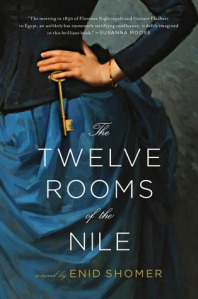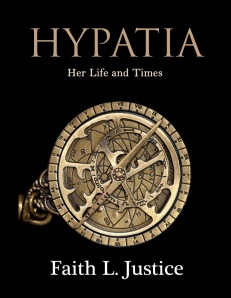HAPPY HOLIDAYS!
 As a gift to my readers and the followers of this blog, I’ve joined Passages to the Past and 30+ other blogs in the 1st Annual Historical Holiday Blog Hop. Each blog in the hop has a great giveaway package: historical fiction, history books, gift cards and more. So give yourself a present this year and check out the list here. “Hop” from blog to blog to see who’s giving away what and sign up for some great goodies. There are also Grand Prizes (I’ve donated a paperback and an ebook copy of my own novel Selene of Alexandria.) For my blog giveaway we have three prizes, once-read review copies of:
As a gift to my readers and the followers of this blog, I’ve joined Passages to the Past and 30+ other blogs in the 1st Annual Historical Holiday Blog Hop. Each blog in the hop has a great giveaway package: historical fiction, history books, gift cards and more. So give yourself a present this year and check out the list here. “Hop” from blog to blog to see who’s giving away what and sign up for some great goodies. There are also Grand Prizes (I’ve donated a paperback and an ebook copy of my own novel Selene of Alexandria.) For my blog giveaway we have three prizes, once-read review copies of:
And the winner is: sara!
The Twelve Rooms of the Nile by Enid Shomer made NPR’s list of the year’s best historical fiction of 2012 (read a guest post by Enid here.) A literary novel about the imagined meeting of Florence Nightingale and Gustave Flaubert when they both traveled the fabled river–before they became famous.
- Title: The Twelve Rooms of the Nile
- Author: Enid Shomer
- Publisher: Simon and Schuster, 2012
- ISBN: 978-1-4516-4298-4
- Format: Hardcover, 449 pages
- Price: $26.00
And the winner is: Meg!
The Seven Wonders by Stephen Saylor (read my review here.) Gordianus the Finder is back in this prequel to Steven Saylor’s popular series of mysteries set in the Roman Republic. Follow his adventures as Gordianus embarks on the First Century BCE equivalent of a “Grand Tour” of the Seven Wonders of the ancient world.
- Title: The Seven Wonders: A Novel of the Ancient World
- Author: Steven Saylor
- Publisher: Minotaur Books, 2012
- ISBN: 978-0-312-35984-3
- Format: Hardcover, 321 pages
- Price: $25.99
And the winner is: milliebotdesigns!
The Raven’s Seal by Andrei Baltakmens (read a guest post by Andrei here.) A historical mystery with a brooding gaol (jail for us in the US), intriguing characters and a twisty plot. If you like Dickens, you’ll like this one!
- Title: The Raven’s Seal
- Author: Andrei Baltrakmens
- Publisher: Top Five Books, 2012
- ISBN: 978-0-9852787-5-5
- Format: trade paperback ARC (uncorrected proof), 406 pages
- Price: $14.00
Giveaway Details (US addresses only)
Entry is easy: leave a comment on this post saying which book(s) you would like, by midnight Monday, December 17 (email not necessary in the comment, but please give it when asked, so I can get back to you if you win.) If you want a second entry, sign up to follow the blog or indicate you’re already a follower. For additional chances, repost this giveaway on your Facebook, blog, Twitter, website, etc. and post the link in your comment (maximum five chances.) Don’t worry if your post doesn’t appear immediately, because I moderate comments and don’t spend my life at my computer. I’ll randomly select the winners and announce it on Tuesday, December 18. Also, there will be a mystery prize! Good luck, everyone, and happy holidays!
And the winner of the mystery prize is: Helen! She’ll receive a signed copy of my novel Selene of Alexandria
Thanks to everyone who entered the Blog Hop and congratulations to our winners.
Safe and happy holidays to all!










 As anyone knows, who’s stopped by this blog, I’m a sucker for anything set in Alexandria, especially during the Roman period. I’ve studied the city for many years and it’s the setting for
As anyone knows, who’s stopped by this blog, I’m a sucker for anything set in Alexandria, especially during the Roman period. I’ve studied the city for many years and it’s the setting for 